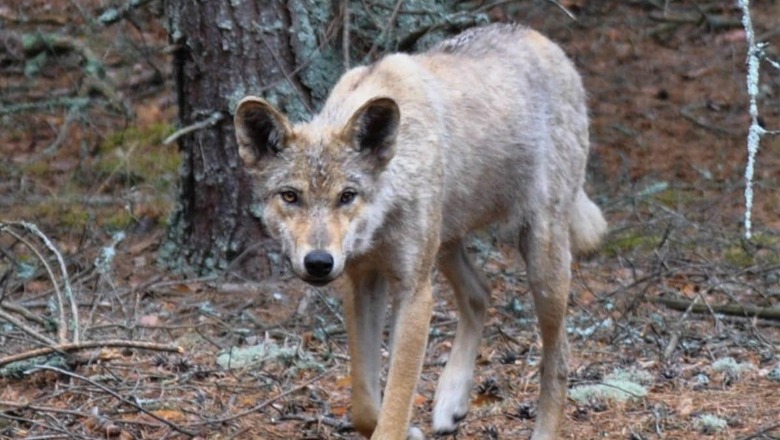
views
Wolves which are found inside and near the human-free Chernobyl Exclusion Zone have developed cancer-resilient genomes and that could help humans fight cancer in the future, according to a study by Cara Love, an evolutionary biologist and ecotoxicologist in Shane Campbell-Staton’s lab at Princeton University.
The study found that the wolves managed to adapt and survive with the high radiation levels recorded in the aftermath of the explosion of the nuclear reactor at the Chernobyl power plant in 1986. The Chernobyl incident was the world’s worst nuclear accident in history. The area has been abandoned by humans since as the explosion leaked cancer-causing radiation into the environment and to prevent further human exposure a 1,000-square-mile zone was roped off.
Almost four decades after the nuclear disaster, wildlife has thrived in the area and several animals, including packs of wolves, appeared unaffected by the chronic exposure to nuclear radiation.
Cara Love’s study focuses on how the mutant wolves have evolved to survive their radioactive environment. Her findings were presented at the Annual Meeting of Society of Integrative and Comparative Biology in Seattle, Washington in January.
Thank you all!!! Successfully funded #Chernobyl disease ecology research! Don't forget – what are your interests?! https://t.co/Q99qboR4LJ pic.twitter.com/bh9nrwlSs8— Cara N. Love (@CaraNLove) October 7, 2016
As part of the study, GPS collars equipped with radiation dosimeters were put on the wild wolves. The researchers also took blood from the wolves to understand their responses to the cancer-causing radiation, according to a press release by the Society of Integrative and Comparative Biology.
Researchers got real-time measurements of where the wolves are and how much radiation they are exposed to with these specialised collars.
The researchers found the wolves were exposed to 11.28 millirem of radiation daily for their lifespans which is more than six times the legal safety limit for humans.
The researchers also found that the immune systems of these wolves of Chernobyl were similar to those of cancer patients going through radiation treatment and different from normal wolves.
The study could be key to understanding how gene mutations in humans could increase the odds of surviving cancer and reshape our understanding of known mutations like BRCA, which cause cancer.
However, not all animals there adapted well to the radioactive environment. Birds in the region experienced extreme genetic defects as a result of the toxic radiation.


















Comments
0 comment